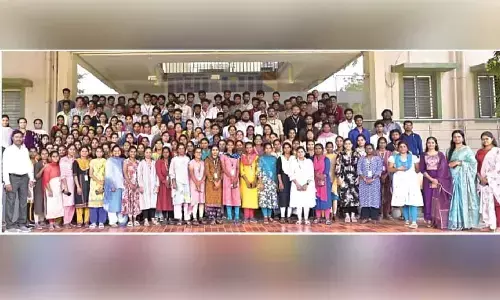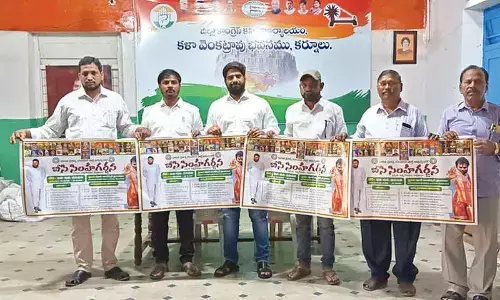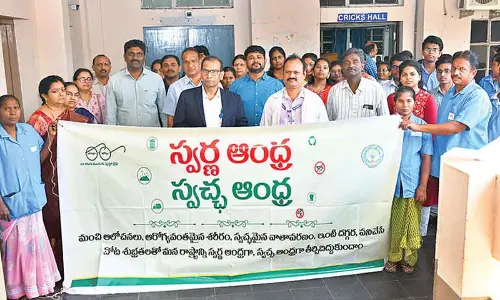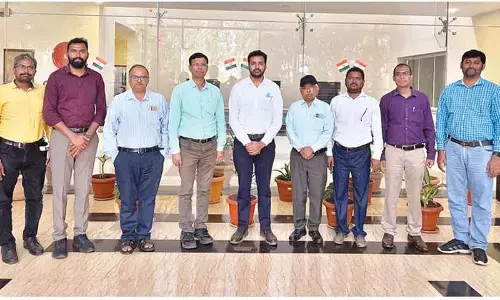How Childhood Experiences Impact the Love Styles?

Representative image
- Our childhood experiences and the way our parents related to us, do have imprinted specific thought patterns and also behaviors on us.
- Our childhood experiences and the way our parents related to us, do have imprinted specific thought patterns and also behaviors on us.
The root of the problem
Our childhood experiences and the way our parents related to us, do have imprinted specific thought patterns and also behaviors on us.
For a few of us, our early love lessons were ideal and our love style is healthy and positive. Most of us, would have thought, had few hurtful experiences, which result in a harmful imprint and impaired love style and it can handicap our marriage relationship.
Naturally, all of us wish to feel we are doing our best as spouses. To do our best, we have to take an honest look at what hinders us. Keep in mind, that the goal is not to find fault with our parents. Here the goal is to acknowledge the truth of our childhood so that, we have a road map for growth and change.
Five unhealthy love styles
The avoider
People with this type of love style usually come from home, which are performance-based, which tend to encourage independence and minimize the expression of feelings or needs. Kids respond to insufficient comfort and nurturing by restricting their feelings and learning to take care of themselves. So, as adults, they must avoid emotions and neediness both in themselves and others.
Individuals with this love style, never would have bonded with their parents or siblings. By learning about these childhood memories, you would know as to why you are so independent and distant.
For Avoiders, learning to identify and dealing with feelings is like learning to play a new sport. It is awkward and challenging at first, but the more we practice, the more comfortable it gets. Because our feelings tell us what we need, we should recognize and share them.
The Pleaser
For Avoiders, learning to identify and dealing with feelings is like learning to play a new sport. It is awkward and challenging at first, but the more we practice, the more comfortable it gets. Because our feelings tell us what we need, we should recognize and share them.
As children, pleasers try to be good to keep the parents from worrying or being angry. A Few kids in this environment become extremely well behaved to compensate for unruly, disabled or ill sibling. Pleasers usually feel anxious, but they do not receive comfort, rather they tend to end up comforting the angry parent or calming the fears of the worried patient.
Pleasers tend to avoid conflict and are afraid to be honest about how they feel, this making all the more difficult to address the problem. The spouses of the pleasers state, my spouse is too clingy and always want me to be in good mood. As kid, they were constantly on high alert.
The vacillator
Pleasers tend to avoid conflict and are afraid to be honest about how they feel, this making all the more difficult to address the problem. The spouses of the pleasers state, my spouse is too clingy and always want me to be in a good mood. As kid, they were constantly on high alert.
Children of parents, who connect in sporadic as well as unpredictable ways might become vacillators. These kids tend to receive enough connection to make them desire more, which would lead to waiting as well as wondering as to when their parents might show them some attention again. As they tend to wait, they might become hypersensitive to signs of connection as well as rejection. These long periods of waiting might make the vacillator feel unseen, misunderstood, along and abandoned.
As adults, vacillators are on a quest to find the gratifying, consistent connection they missed as kids. They tend to idealize new relationships, thus believing they have found the perfect mate. But as soon as real life sets in and they need to wait for their spouse to be emotionally available. Vacillators are disappointed and blame their partner. People married to vacillators say, " I am getting a mixed message. "Come here! Go away"! can't make my spouse happy.
The controller and Victim
Kids raised in chaotic homes-where a connection is not just unavailable or sporadic, but also dangerous, it may become controllers or victims. Their parents often have serious problems which include addictions and mental illness, so they do not relieve stress for their children. They are the source of stress.
Compliant kids, who are fearful and submissive tend to become victims at an early age. Growing up, victims learn to tolerate the intolerable. It seems very normal to be mistreated and this abuse rips apart the victims' self -esteem and confidence.
A secure connection
Kids raised in chaotic homes-where connection is not just unavailable or sporadic, but also very dangerous-it may become controllers or victims. Their parents often have serious problems, including addiction and mental illness, so they do not relieve stress for their children. They are the source of stress.
Complaint kids are who are fearful and submissive become victims at an early age, growing up, victims learnt to tolerate the intolerable. It seems normal to be mistreated and this abuse rips apart the victim's self-esteem and confidence.
The goal is to create the secure connection, we missed out on as kids. Being a secure connector giving and receiving love in a healthy way. Honestly addressing problems with patience and grace, repairing ruptures when they occurred. Couples having secure connection can evaluate both strengths as well as weakness, own their contribution to relational difficulties and apologize sincerely when they make mistakes.











